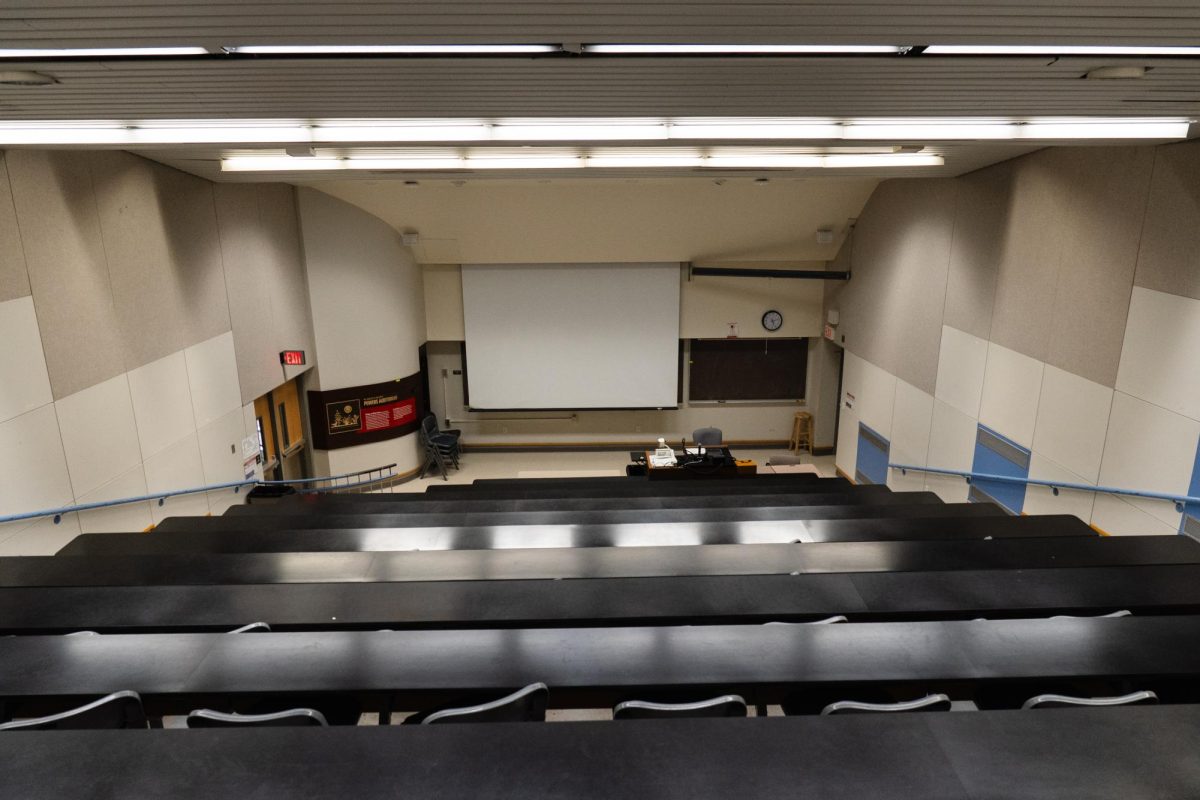Glawe, From Tripoli to Damascus: U.S. should remember past struggles when forming plan for Syria
September 9, 2013
As Congress is called forth from their August recess to decide the fate of President Bashar al-Assad’s chemical weapon stockpile, it seems both prudent and necessary that the United States commits — or rather, recommits — to remember well-forgotten struggles against familiar adversaries. It should also be the wish of my generation that tyrants such as Moammar Gadhafi, Assad, Hosni Mubarak and Saddam Hussein, sinister breeds of what has traditionally existed as the common enemy of mankind, are not so quickly lost in time either.
It is salient among the clichés of isolationists to echo the farewell of our first president (and such echoes have made their reappearance in this post-Iraq era). Before taking leave to his home on the bluffs of the Potomac, Washington addressed the people of the United States in an eerily worded letter: “The great rule of conduct for us, in regard to foreign nations, is in extending our commercial relations, to have with them as little political connection as possible.”
Washington’s remarks failed in their effect. Our third president, Thomas Jefferson, found himself embroiled in a commercial conflict with the Barbary States of Algiers and Tripoli (what we now know as Libya), which frequently captured and enslaved American sailors and merchants, and demanded in exchange for their lives a tribute to which some European nations had already capitulated.
In dealing with these rogue quasi-subsets of the Ottoman Empire, Jefferson soon acquired a deeper understanding of the pirate attacks. As one envoy of Tripoli admitted upon inquiry: “It was written in their Koran that all nations which had not acknowledged the Prophet were sinners, whom it was the right and duty of the faithful to plunder and enslave.”
Following his inauguration, Jefferson promptly ceased tributes to the Barbary States, and in response the leaders of Tripoli sounded the drums of war. Thus began the first of America’s affairs with the Middle East and North Africa. Opposed was John Adams, a supporter of America’s tributary status, who foretold the coming strife, “We ought not to fight them at all unless we determine to fight them forever.”
Adams’ words are perhaps more odious than intended, as we now consider yet another venture to that part of the world. Resolutions reducing our involvement in Syria to “time constraints” become trivialized under broader contexts. We must recognize that the West’s relationship with the Middle East cuts deeper and runs longer than the mundane contrasts of our era.
Jefferson’s war against the Barbary States exists as a mere episode in the infancy of a nation. Rather, Napoleon’s conquest of Egypt proves to have been a much greater catalyst for Western expansionism. Indeed, it was not until the discovery of oil in the Middle East and the partition of Palestine that the United States began acting as a true colonial power.
It can be said, fairly, I think, that imperial hubris is the bane of democracy. As a prelude to any intervention (saliently, intervention in the Middle East and North Africa), America must admit to, with contrition, its past hypocrisies (and atrocities) on the international stage.
Nevertheless, we cannot shy away from our duty and obligation to protect people against this new menace. Instead of pirates and raiders, the world is now confronted with terrorists, gangsters and tyrants. These people are certainly not anti-imperialist.
We need only look to Saddam Hussein and his cronies (the ousting of whom was a deliverance), who forced Iraqis to participate in their own oppression. During the subjugation of Iraq, namely of the Kurds, Hussein attempted to leverage his nation’s oil wealth to dominate the neighboring Gulf States and control much of the world’s oil supply (Jefferson would find this all too familiar). This is not liberation from the West, but a struggle for power.
Much more can be said of the terrorist groups harbored by these vile creatures. I am reminded of a pointed remark made by the late polemicist Christopher Hitchens about those terrorists and tyrants: “So these al-Qaeda chaps, killers, sadists, nihilists and producers of indiscriminate explosions, wouldn’t be this way if only we weren’t so mean to them?”
While the U.S. is sometimes conspicuously connected to the creation of such fiends, the priority of shielding innocents is not diminished. In other words, we must not allow our past mistakes to tarnish our current resolve. Assuredly, nonintervention does not mean that nothing will happen in Syria.
The anti-war factions dread the risk of a prolonged conflict in the image of Iraq. To this Hitchens replied: “Yes, well, we could have guaranteed a nice, short war if we had let the practitioners of genocide have their way.” Perhaps we do intend to fight “them” forever.
After all, is there a more worthy cause than to purge the world of the pestilence that is tyranny?
















